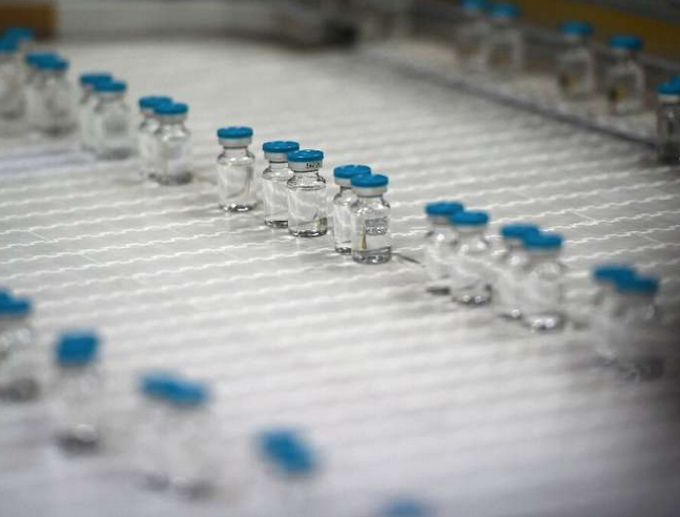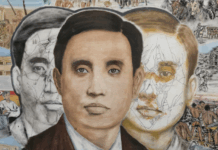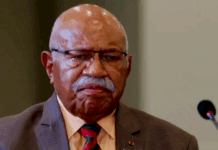
COMMENTARY: By Jo Spratt
When this novel coronavirus first swept the world last year, it was quickly obvious global vaccination was the only way out.
Governments invested billions in public funding and guaranteed pre-orders to corporations like Moderna, Pfizer/BioNtech, Johnson & Johnson, Novovax and Oxford/AstraZeneca to incentivise vaccine research and development.
Never before has a vaccine been created and tested so quickly. It was a tribute to human ingenuity and creativity, and a reminder of how powerful we are when we work together.
Yet, a year after the first person was vaccinated, less than 2 percent of people in the poorest countries have benefited.
Ahead of their annual shareholder meetings earlier this year, major vaccine producers, Pfizer, Johnson & Johnson and AstraZeneca revealed they had paid out US$26 billion in dividends and stock buybacks to shareholders in the previous 12 months.
Nine individuals have become billionaires off the back of coronavirus vaccines. Just how are these pharmaceutical corporations and their shareholders making their money?
Pharmaceutical corporations will not share their covid-19 vaccine intellectual property. This means they have a monopoly over a precious resource everyone needs. This gives them the power to charge excessive prices to maximise their profit. And this is what they have done.
Governments paying 4 to 24 times more than cost
Governments worldwide are paying between 4 and 24 times more than the estimated cost of producing the covid-19 vaccines. Experts, including Imperial College London, estimate the Pfizer and Moderna mRNA vaccines can be produced for as little as NZ$1.70.
According to reported prices that are available, even COVAX — the international facility set up to buy vaccines especially for poor countries — is paying an average of five times this cost.
Pfizer/BioNTech are charging their lowest reported price of NZ$9.70 to the African Union but this is still nearly six times more than the estimated production cost.
Israel has paid the highest reported price for Pfizer/BioNTech vaccines at NZ$40.26 a dose – nearly 24 times the potential production cost. Some reports suggest they paid even more.
In New Zealand, while the details are not public, we do know that in the 2021 Budget the Government set aside NZ$1 billion for vaccines. Assuming we have paid for all the vaccines that we have pre-purchase agreements for from this amount, (which is probably a generous assumption), we have paid at least nine times more than production costs.
As we consider the need for booster shots, Pfizer has suggested raising prices further.
I don’t buy the argument that pharmaceutical corporations have to charge so much because they invest in risky research and development. As stated, billions of public dollars went into the research and development of covid-19 vaccines.
Previous public investment
These vaccines would not be possible without decades of previous public investment in research and development.
Over the past 80 years, the US’s National Institutes of Health alone invested almost US$900 billion in biotech and pharmaceutical research, and continues to put in US$30 billion a year.
It is not pharmaceutical corporations investing in the risk of uncertainty, but governments across the world.
Besides that, pharmaceutical corporations spend more on marketing than on research and development. In 2013, Johnson & Johnson spent more than twice as much on sales and marketing than on R&D: US$17.5 billion versus US$8.2 billion.
For Pfizer, it was US$11.4 billion on marketing versus US$6.6 billion on R&D. Marketing costs are also tax deductible.
Further, economist Mariana Mazzucato reports pharmaceutical corporations put their profits into dividends and share buybacks that increase stock prices and CEO pay. That is precisely what we are seeing during this pandemic.
Put simply, the public fund the bulk of pharmaceutical research and development. Pharmaceutical corporations get the intellectual property and know-how, then force the public to pay again for vaccines, at prices far above a reasonable profit.
Money goes to already wealthy individuals
The ultimate result is public money going into the pockets of already wealthy individuals.
While they get rich, millions fall back into extreme poverty – living on less than NZ$2.70 a day – and the coronavirus continues to circulate and mutate, potentially rendering these vaccines obsolete and holding us all to ransom for years to come.
Soon negotiations will be under way again at the World Trade Organisation (WTO) to get consensus among governments to waive the intellectual property rights for covid-19 vaccines.
New Zealand supports this waiver, but the challenge is to persuade countries such as Germany and the UK. If this can be achieved, it will break the pharmaceutical corporations’ monopoly and allow vaccine supply to expand and the cost to drop.
The work doesn’t end there. How can we recreate our system to develop essential medicines and get them to everyone, using public funds for collective well-being, and avoid creating another handful of billionaires?
Dr Jo Spratt is the advocacy and communications director at Oxfam Aotearoa. This article is republished with the permission of the author and Oxfam.










































